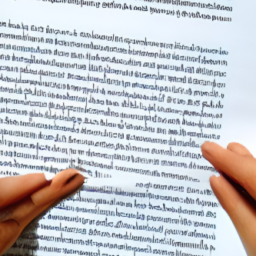
Modern marketing, under the influence of artificial intelligence (AI), is dynamically revolutionizing the way companies create marketing content and connect with customers.

What exactly is marketing content?
Marketing content is all information about a company, product, brand etc., the purpose of which is promotion and information in order to gain new and retain existing customers. these activities are often associated with the concept of marketing content. It’s a way of advertising your business through content creation. Content marketing engages customers and builds loyalty, making it effective in customer retention. Over 97% of marketers say that content marketing is part of their marketing strategy[1]. Here are some examples of content marketing:
- Blog posts
- Emails
- Newsletters
- Social media posts
- Podcasts
- E-books
- Movies
- Ads
Creating multilingual content by AI
Marketing today is global and digital, so creating content in multiple languages has become crucial. Translation tools that are based on artificial intelligence can quickly and automatically translate content into various languages, while ensuring fairly good consistency and correctness. This is a huge convenience. These tools can save translators and marketers a lot of time and companies money. We have a really wide selection of such AI tools – from cheaper and free to really advanced and expensive. For example, an AI-powered translation tool can help a global retail company expand its overseas reach by quickly and relatively cheaply translating product descriptions and customer service content into multiple languages. AI can also be very helpful in various analyses, e.g. of the target market, by automatically collecting data from various sources, such as websites, social media and processing it to identify patterns and trends. There is no doubt that artificial intelligence brings many benefits, but as in every case – there are two sides of the coin.
What is currently AI missing?
Creativity
Marketing translations are more than word-for-word translations. Human translator considers style, cultural nuances and takes into account the current situation in the world. It is these details that make the text lively and fluid. These elements are still missing fully in AI tools. If texts often contain metaphors, images, or other double meanings, it is important to look at the whole rather than the individual meanings of the words.
AI translations do not translate non-verbal communication.
Tone, body language and inflection are universal aspects of communication that give greater and more specific meaning to our spoken language. Words convey only 7% of information, non-verbal signals constitute 55% of our message. By relying solely on machine translations, the non-verbal aspect of communication is completely lost. Non-verbal communication, gestures, tone of speech and posture are the key elements of every business meeting. AI translations may be able to accurately translate words, phrases, and even sentences, but they cannot capture everything that happens in human communication.
AI isn’t great in terms of context and connotations
AI has problems with context. The importance of language and communication is often derived from, or at least influenced by, context. However, machines do not yet have the sufficient ability to take into account the context of their translation. They are not human. The importance of context goes beyond keywords. Cultural context is equally important to understanding translation. When idioms and slang are translated literally, they lose their meaning, and artificial intelligence is not yet able to distinguish between metaphorical and literal language.
Artificial intelligence also cannot capture humor in language
Recognizing that something is meant to be a joke in another language is hard enough. Translating it and retaining the meaning is even more difficult, and AI lacks this skill.
Is it worth translating marketing content in the age of AI?
On the one hand, artificial intelligence can replace us and provide faster, more accurate and more consistent translations than a human translator. On the other hand, it has its drawbacks, e.g. it cannot yet reproduce linguistic nuances, plus more and more often people are more aware and realize that a given text was created by AI and thus they feel that the sender of the message is cheating on them and does not treat them particularly important, because AI is taking over.
There is no clear answer to the question “is it worth translating marketing content in the age of AI?” To answer it, you need to take into account many factors and know what our expectations are regarding a given marketing content.
If the text is simple and uncomplicated, and we do not care much about a very creative approach to translating and personalizing the content to a given language group, we can easily use AI and, if necessary, just verify the final effect.
However, if we want the content to be of high quality and personalized to the recipients, AI should be put aside, but this does not mean not to use it. In such projects, artificial intelligence can serve as inspiration and simple curiosity – how AI would approach the topic.
A good answer to the above question may be a combination of artificial intelligence and human skills, because AI also brings many benefits and opportunities, and we should not forget that AI is constantly developing and perhaps soon the above text will no longer be relevant.
[1] https://www.semrush.com/blog/state-of-search-2023/














